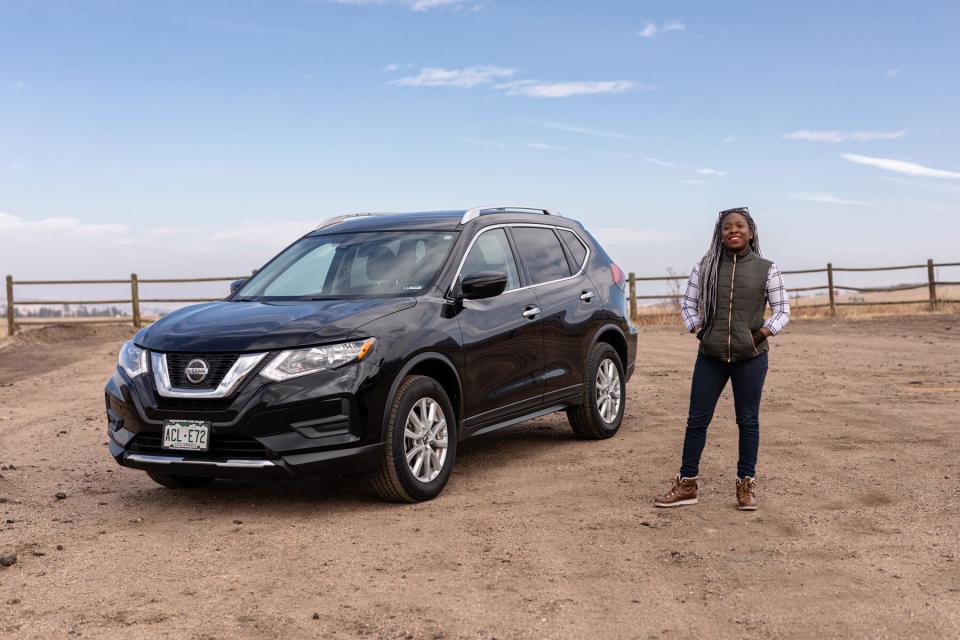Everything You Need to Know About Using Turo, the Airbnb of Cars
The great Carpocalypse of 2021 is upon us. Or rather, it's been in full swing for quite some time already. If you've tried to rent a car at all this past summer, you've likely experienced major sticker shock. Rental car prices have skyrocketed — they were 88% more in June of this year than last — leaving people without many options except for forking over hundreds of dollars per day to rent a bottom-of-the-line economy car.
Why the outrageous surge in rental car pricing? At the beginning of the pandemic, stay-at-home orders and fear of a deadly virus sent demand for cars plummeting. Rental car companies sold off 770,000 cars, with some companies shedding 40% of their inventory, to try to stay afloat. This past spring and summer, as Americans began to get vaccinated and infection numbers were in decline, desire to travel rebounded in a big way and demand for cars rose sharply, outpacing the number of cars available. Meanwhile, a global microchip shortage has slowed new auto production, making it difficult for rental companies to replenish their car supply. Now, with everyone wanting to rent a car but not enough cars to go around, rental car agencies have the ability to name their price.

Oscar Wong/Getty Images
Recently, after spending a few weekends in our "cozy" (read: small) Brooklyn apartment, it was time for a reprieve from the sweatbox that is New York City in the summer. We wanted to take a trip out to the North Fork — drink some wine, shuck some oysters, stay at an adorable bed and breakfast — but we didn't want the hassle of calling and waiting for an Uber or taxi every time we wanted to go anywhere (while available, car services aren't as plentiful out on the North Fork). We were almost foiled by ridiculous rental car prices: $229 per day, picking up from Newark airport in New Jersey — which would have meant spending an hour and a half traveling west for us to pick up a car to drive east. Renting a car for three days would have cost us more than a roundtrip flight to Europe.
But fueled by my desire to get away and refusal to pay "the man" (Avis) that much money, I searched for alternatives and came across the car-sharing company Turo. Much like Airbnb but for cars, owners post their vehicles for rent. They create profiles for their cars, set the price and mileage limits, and would-be car renters ("guests") can search by location and filter by price, rating, type of car, etc., and rent directly from the owners (Turo calls them "hosts," just like on Airbnb).
I read multiple accounts of other users' experiences, and found mostly positive reviews. Of course, as with using any new service for the first time, we had our reservations: What if the car didn't match the photos or description and was in bad shape? What if we had car trouble during the trip or got into an accident — what was covered and what wasn't? What if we somehow couldn't reach the owner to pick up or drop off the car, or we had to change plans and end up returning earlier or later than originally requested?
We decided to give it a go with Turo (did I mention that we'd already spent one too many weekends in New York?). Our experience with Turo actually ended up being extremely seamless and I would happily use it again for the next time we need a car. But whether or not you decide to use Turo depends a lot on your tolerance for risk.

Courtesy of Turo
Why Use Turo?
The advantages of using Turo are plenty. You get to choose the exact car you drive, rather than just choosing the class (economy, intermediate, full-size, etc.), so if you're partial to driving certain types of cars you can search for those specific makes. Or, if it's within your budget, you can rent a Tesla or Ferrari or even a Rolls Royce — cars that perhaps you'd never otherwise get to drive. The company even has a "Wedding Getaway Cars" section where you can find deluxe cars to make a grand entrance or exit from your big day. In our case, it meant choosing a fuel-efficient Toyota Prius, a car both of us had driven before and were familiar with, and worked perfectly for us to get from point A to point B and back.
There's also a lot more flexibility on where you pick up your car. Whereas traditional car rental companies have locations at airports and some outposts in cities, Turo's cars are available wherever there are hosts (it's currently available all across the U.S., Canada, and in the U.K.). This can be a lot more convenient if you're looking to rent a car from home, rather than flying somewhere and picking up a car at your destination. Some hosts even offer delivery of the car right to you.
And the pricing, at least for now, is a lot more attractive than what car rental companies are currently charging. Instead of $229 per day (and that was the cheapest option — many companies were charging more), we rented a car for $95 per day.
The Car Rental Process With Turo
Due to New York State's unique insurance laws, Turo is currently not available for peer-to-peer rental in New York (but available in the 49 other states). So the closest pickup location we could find was right across the state line in Hoboken, New Jersey. This was a quick subway ride away from us, and the car was located just a five-minute walk from the subway station — a much more convenient pickup spot for us than the airport.
Pickup was the most seamless process I've ever experienced with renting a car. Instead of waiting in line at an airport counter, or riding a shuttle to a lot to pick up a car, we met the Turo host in the specified pickup location (which I assume was outside of his apartment building), he handed us the keys, and we were off. We were literally on the road minutes after arriving. The car was in pristine condition, very clean, and ran super smoothly. We had no problems whatsoever.
Choosing a car that has high user reviews is a good way to ensure that you likely won't run into an issue with the cleanliness of the car or the pickup/dropoff process. Reading user reviews beforehand will also give you an idea of any quirks about the car to expect (windshield wipers needing to be replaced, air conditioning not being very strong, issues with connecting to bluetooth, etc.) and whether or not the host was flexible and responsive about schedule changes.
In the event that you have issues with the condition of the car upon pick-up, Turo recommends you communicate with your host immediately and contact Turo support, which is available 24/7. If you have an incident while driving, Turo also provides 24-hour roadside assistance if you purchased a protection plan when booking the car. If you end up deciding that you want to extend or shorten your trip, you just have to submit a request via the app or through your online Turo account and your host can either accept or deny it, depending on the availability of the car.
Drop-off was also just as easy: We messaged our host with the approximate time we were meant to arrive based on Google Maps, and then messaged him again when we were nearby. He met us within minutes for us to hand back the keys and we were off to the subway.
How Does Turo Cover Insurance?
Now, for the elephant in the room: What about insurance? This is where your appetite for risk comes into play. While many renters these days rely on their credit cards' collision damage waivers to cover them in the event of an accident or theft, you most likely won't be able to rely on your credit card insurance when renting from Turo. Turo considers itself a peer-to-peer car-sharing platform, and credit card insurance policies are usually explicit about only covering rentals from a commercial car rental agency.
You can purchase coverage through Turo, and the company has several pages of resources to help you understand your personal liability and what their plans cover. One thing to note is that Turo's protection plans do provide third-party liability insurance (i.e. coverage of damage to another person or their property), whereas credit cards usually do not.
You can also choose to decline a protection plan, in which case you'll be relying on your safe driving abilities (and those of everyone else on the road) and any savings or emergency funds you may have to pay out of pocket for potential damage, liability, and claims.
Turo's plans come in three tiers: premium, standard, and minimum. As with all insurance, the more the plan costs, the less liability you have for covering any potential damages. Through the booking process it will clearly state the cost of each plan and outline what each covers so you can choose which plan you're comfortable with.
The Bottom Line
My experience using Turo was great and I would highly recommend it to anyone looking to circumvent the high prices at traditional car rental agencies.
As someone who pores over reviews of anything I spend my money on (restaurants, clothing, vacation rentals, hotels, you name it), I appreciated that I could read reviews of cars to have some sense of assurance that we wouldn't end up with a dud, as well as have some expectation of what the interaction would be like with the host.

Courtesy of Turo
In the same way that Airbnb fosters interaction between hosts and guests, Turo is very much based on this same human interaction — however little it may be, as was the case for us because the trip went so smoothly. In the event of an unforeseen issue, I liked that we had a direct line of communication to the host, rather than having to wait on hold to talk to a corporate customer service agent. I also read several reviews of repeat guests who rented from the same owner because they had good experiences and trusted those hosts.
I also applaud the idea of participating in a sharing economy with peers and the brilliantly simple concept of using a car when someone else isn't. "Turo was founded with a mission to put the world's 1.5 billion cars to better use," Turo CEO Andre Haddad told T+L. Especially now, with the squeeze on rental car inventory, it makes less sense to pay car rental agencies when you could make use of cars that are sitting unused. I like to think of it as borrowing a car from a friend — except you're paying that friend a fair price for using their car.
One of the other founding principles of Turo, as Haddad explained, was to "provide hosts the platform to tap into their entrepreneurial drive." Just as Airbnb hosts do with extra rooms in their homes, and Depop sellers do with clothes and accessories they no longer want, Turo hosts can earn money when they're not using their cars. It's a "win-win" for both hosts and guests.
What may scare off some users is that there is no damage coverage unless you pay for Turo's protection plans. Your personal auto insurance likely won't cover you if you're driving a Turo car, and neither will your credit card's collision damage waiver. Of course, to be sure of the details of your specific policy, call your insurance provider or credit card company to make sure you understand what is or isn't covered. However, we're in dire times (it's a Carpocalypse, remember?). Weighing that risk against how much you want to pay might just have you trying out Turo the next time you need to rent a car.
Karen Chen is always planning her next great escape and loves the beach more than anyone else you know. See her prove it on Instagram @karenichen.

